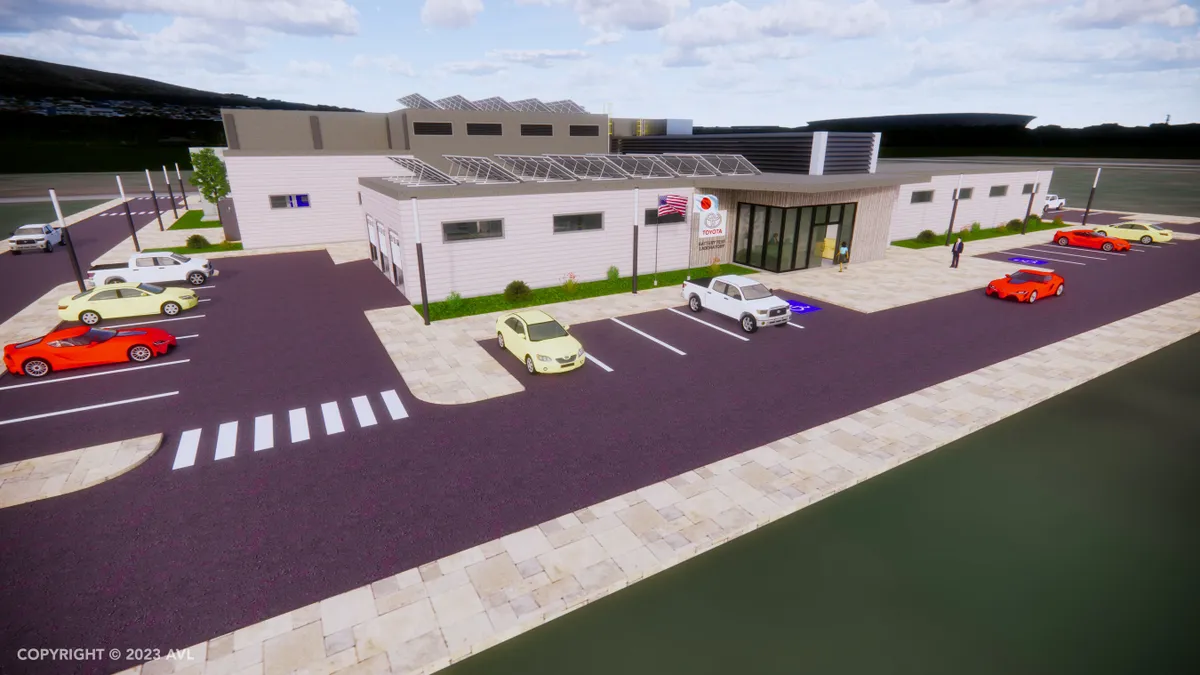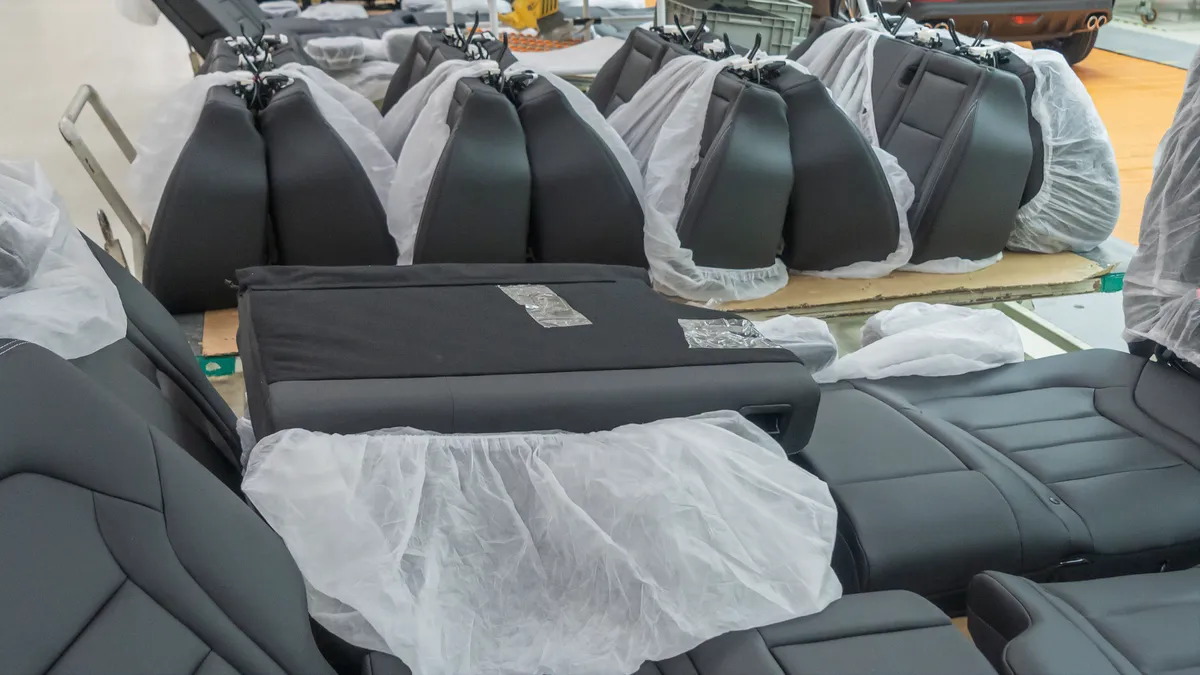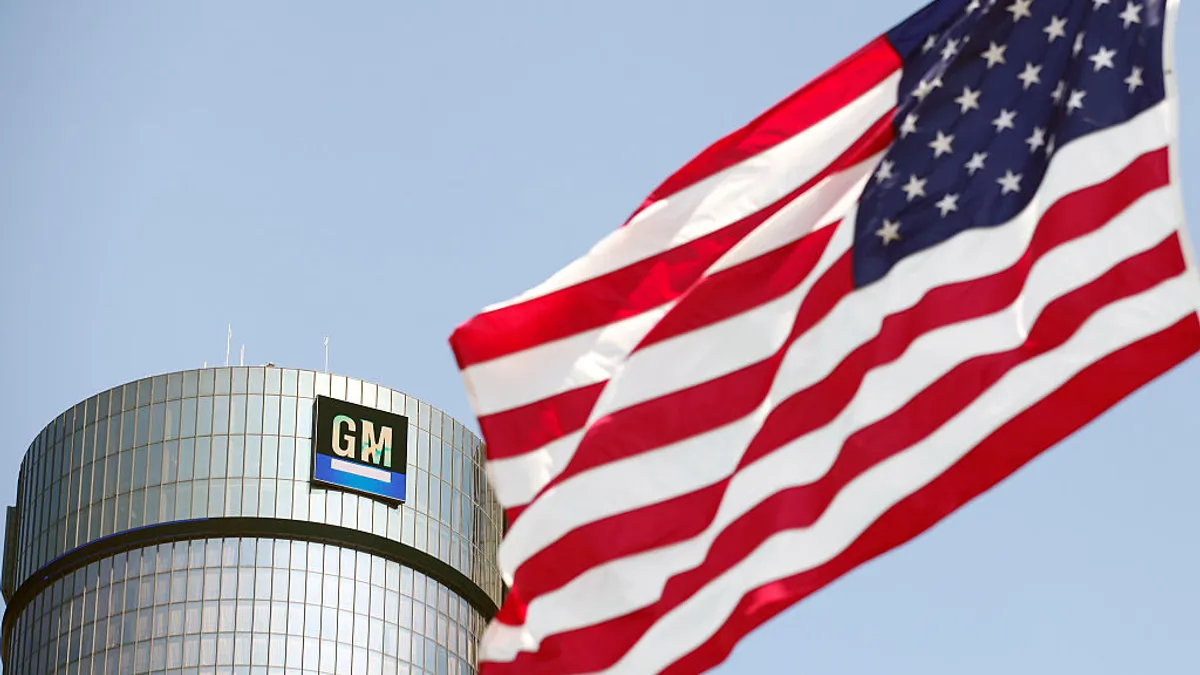Dive Brief:
- Toyota will invest nearly $50 million to build a new electric vehicle battery laboratory facility at its North American R&D headquarters in York Township, Michigan, according to a press release Thursday.
- The facility, expected to open in 2025, will evaluate batteries for the automaker’s electric and hybrid vehicles sold in North America to ensure they meet performance, quality and durability standards.
- The battery lab is part of Toyota’s larger plans to invest more than $70 billion in vehicle electrification by 2030.
Dive Insight:
In the last two years, Toyota has invested more than $8 billion to build out its U.S. manufacturing operations to launch new EVs, and the battery lab is the next step toward its broader electrification goals.
In addition to battery development, the lab will evaluate Level 2 and Level 3 charging technology, including connectivity to power sources and infrastructure. Lab engineers will also explore new battery configurations, which may include the development of new electrified vehicle architectures.
Toyota is also updating its chassis dynamometers at its two Michigan campuses, the one in York Township and another in Ann Arbor, to support full vehicle evaluations. These dynamometers simulate a variety of real-world conditions that Toyota EVs might operate in.
“This new investment in our North American R&D operation, which has been a key pillar of the Michigan automotive industry for more than 50 years, shows Toyota’s directional shift towards electrification for all,” said Shinichi Yasui, executive vice president of research and development, in a press release.
By 2025, Toyota plans to have an electrified version of all Toyota and Lexus models globally. The company also said in May that it's launching a fully-electric SUV for the U.S. market. Toyota's North Carolina battery factory — currently under construction — will manufacture batteries for the vehicle. The company is investing an additional $2.1 billion in the facility, with battery production slated to begin in 2025.
Ford Motor Co. is also investing in EV battery production in Michigan. The automaker plans to produce both nickel cobalt manganese and lithium iron phosphate batteries in the U.S. to bolster its supply chain — LFP batteries are less reliant on nickel and cobalt than NCM batteries. In February, Ford announced it’s investing $3.5 billion to build an LFP battery plant named BlueOval Battery Park Michigan. Initial production is slated for 2026.
Ford’s Michigan battery production facility will add approximately 35-gigawatt hours per year of new battery capacity, which is enough for roughly 400,000 EVs, according to the company














